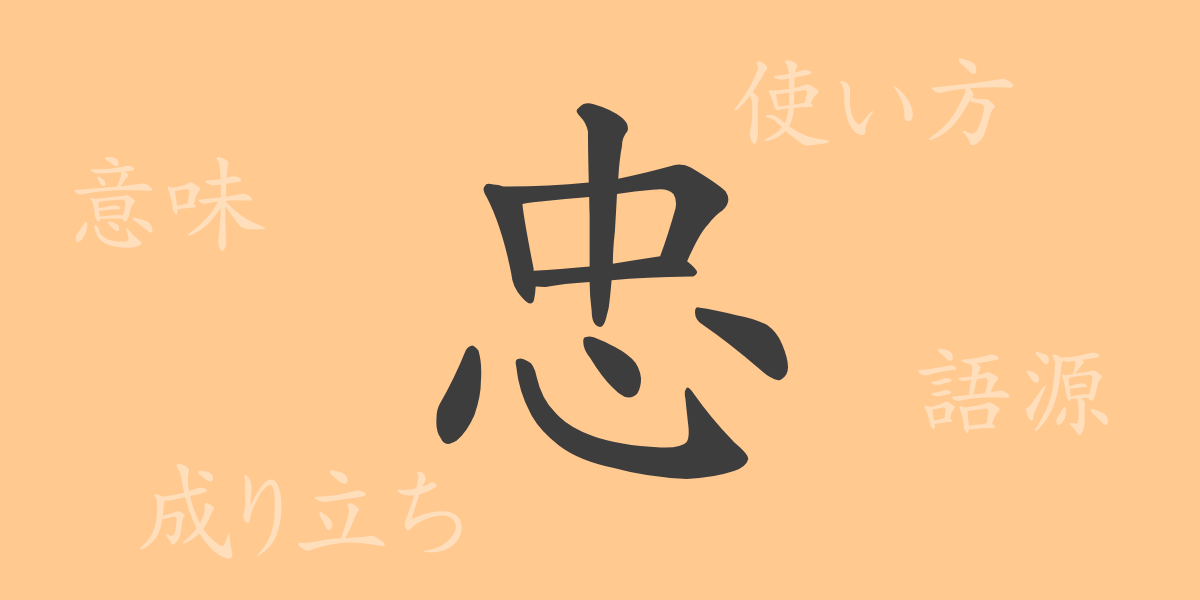The Kanji ‘忠(ちゅう)’ is deeply rooted in Japanese culture and carries a weight that transcends mere letters. This article delves into the history, meaning, and everyday usage of ‘忠,’ a common Kanji that symbolizes loyalty and duty in Japanese society. Let’s embark on a journey to discover how ‘忠’ is represented and valued.
Origins of ‘忠(ちゅう)’
The Kanji ‘忠’ evolved from ancient Chinese pictographs. The central ‘中’ originally meant ‘center,’ surrounded by ‘心’ which symbolizes the ‘heart’ or ’emotions.’ Thus, ‘忠’ initially meant ‘what lies at the heart,’ used to express sincerity or truthfulness. Over time, it has come to signify loyalty and fidelity and is widely used across the Kanji-using regions, including Japan.
Meaning and Usage of ‘忠(ちゅう)’
‘忠’ typically conveys meanings of ‘faithfulness’ and ‘loyalty.’ It is often used to describe fidelity to people, ideals, or duties, particularly in contexts of loyalty to superiors or countries. It can also signify a strong commitment to personal principles or convictions.
Readings, Stroke Count, and Radical of ‘忠(ちゅう)’
Let’s explore how ‘忠’ is read and its structural components:
- Readings: On’yomi ‘チュウ’, Kun’yomi ‘ただし’
- Stroke Count: Comprises 8 strokes.
- Radical: The radical is ‘心’, related to characters denoting emotions or mental activities.
Phrases, Idioms, and Proverbs Involving ‘忠(ちゅう)’
The essence of the Kanji ‘忠’ is reflected in various idioms, phrases, and proverbs:
- 忠告(ちゅうこく) – Giving advice or pointing out mistakes with the other’s best interests in mind.
- 忠義(ちゅうぎ) – Loyalty and duty, especially towards a lord.
- 忠節(ちゅうせつ) – Loyalty and integrity, adherence to firm beliefs and principles.
- 忠実(ちゅうじつ) – Being reliable or possessing such qualities.
- 忠臣蔵(ちゅうしんぐら) – A traditional Japanese narrative focusing on the loyalty of the Akō rōnin, symbolizing the importance of loyalty and honor.
Conclusion on ‘忠(ちゅう)’
The Kanji ‘忠’ symbolizes concepts deeply integrated into Japanese ethics and societal values. Loyalty and sincerity are virtues expected of individuals as part of society, and this character continues to be used to express these values. In education, workplace, and family communications within Japan, the spirit of ‘忠’ plays a crucial role. Understanding the profound meanings and cultural impact of this single character is invaluable for those learning Japanese.

























